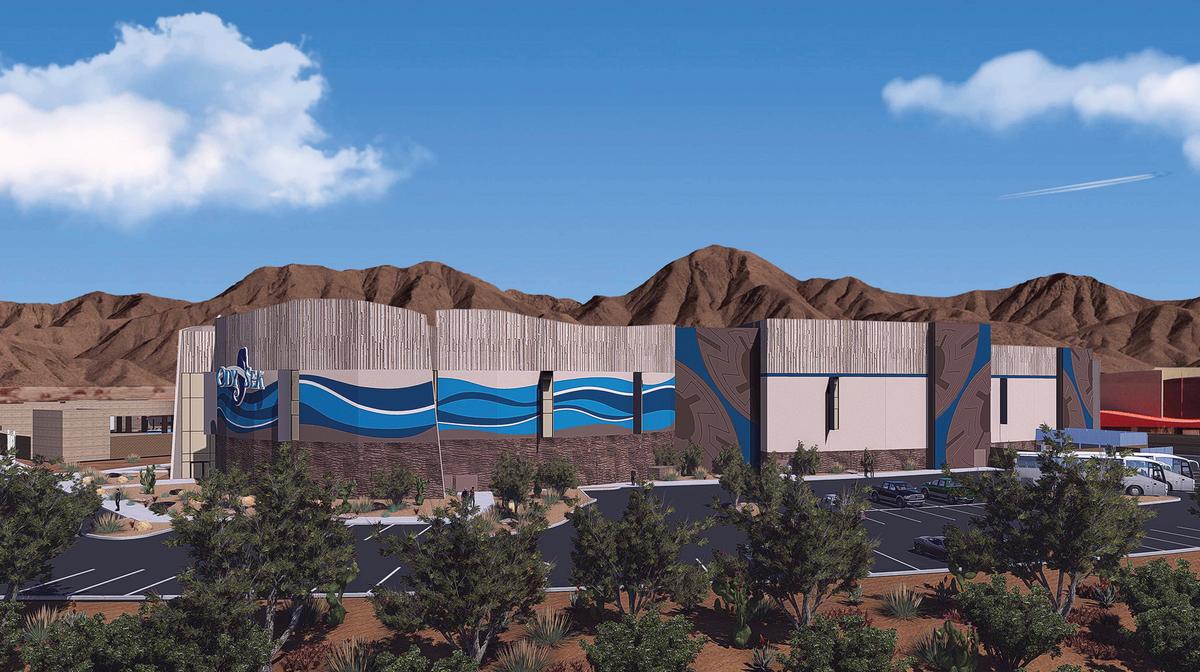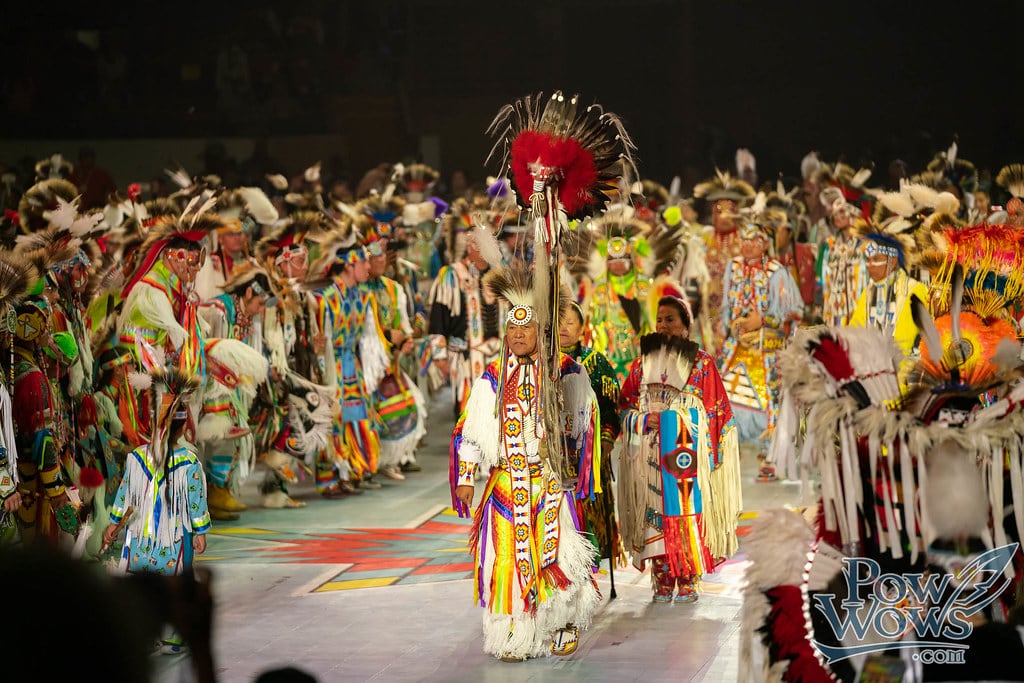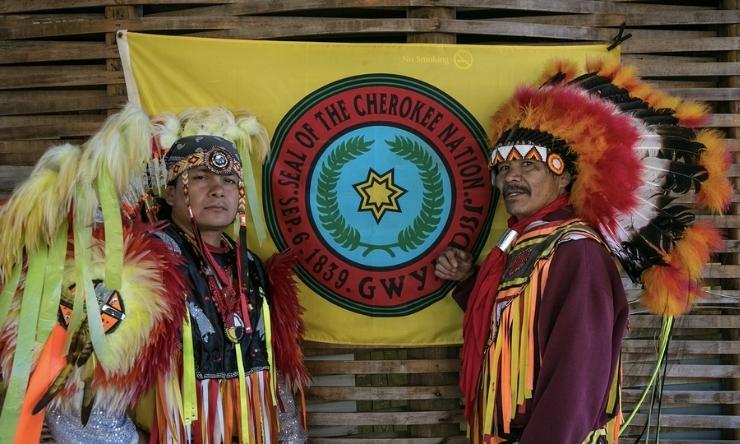Beyond Casinos: Exploring the Wealth of America’s Indigenous Tribes
Beyond Casinos: Exploring the Wealth of America’s Indigenous Tribes

The image of Native Americans often conjures up images of poverty, hardship, and a struggle for recognition. While these realities exist for many tribes, it’s crucial to understand that the picture is far more complex. A significant number of Indigenous tribes in the United States have achieved remarkable economic success, accumulating substantial wealth and building thriving communities. This wealth isn’t just about casinos, though they play a crucial role for some. It’s a story of resilience, resourcefulness, and a determined fight for self-determination.
The Rise of Tribal Economies
Related Articles: Beyond Casinos: Exploring the Wealth of America’s Indigenous Tribes
- 5 Dollar IndiansTitle
- The San Manuel Band Of Mission Indians: A Legacy Of Resilience And Prosperity
- Unpacking The Complexities Of Wealth: Understanding The Richest Native American Tribes
- Unveiling The Wealth Of Indigenous Nations: Exploring The Richest Indian Tribes In The United States
- The Unexpected Wealth Of Indian Reservations: Unpacking The Myths And Realities
The story of Indigenous wealth begins with the inherent right to self-determination enshrined in the Indian Self-Determination and Education Assistance Act of 1975. This legislation empowered tribes to manage their own affairs, including economic development. This autonomy paved the way for a diverse range of economic ventures, from casinos to energy production, agriculture, and even high-tech industries.
The Casino Boom and Beyond
The Indian Gaming Regulatory Act of 1988 legalized gaming on tribal lands, opening the door for a significant economic shift. Casinos became a major source of revenue for many tribes, generating employment and contributing to community development. However, it’s important to note that not all tribes operate casinos. Some have opted for other economic avenues, while others have chosen to focus on preserving their cultural heritage and traditional practices.
Diverse Sources of Wealth
Beyond casinos, Indigenous tribes have successfully tapped into a variety of economic opportunities:
- Energy Resources: Tribes with access to oil, gas, and other natural resources have capitalized on these assets, generating substantial revenue. The Navajo Nation, for instance, is a major producer of coal and uranium, contributing significantly to its economic success.
- Agriculture: Many tribes have a long history of agriculture, and some have successfully modernized their practices, producing crops, livestock, and other agricultural products for local and national markets. The Cherokee Nation, for example, operates a thriving agricultural enterprise.
- Tourism: Tribal lands often boast stunning natural beauty and rich cultural heritage, attracting tourists from around the world. Tribes have developed tourism infrastructure, including hotels, restaurants, and cultural attractions, generating significant revenue. The Hopi Tribe in Arizona, known for its traditional villages and ceremonies, is a prime example.
- Technology and Innovation: Some tribes have embraced technology and innovation, establishing businesses in areas like software development, renewable energy, and e-commerce. The Chickasaw Nation, for example, has invested heavily in technology, creating a thriving tech sector.
- Government Contracts: Tribes have secured government contracts for various services, including construction, healthcare, and education. This has provided valuable income and stimulated economic growth in tribal communities.

Investing in the Future

The wealth accumulated by Indigenous tribes is not just about individual prosperity. It’s about investing in the future of their communities. Tribes are using their resources to:
- Education: Investing in education is a top priority for many tribes, ensuring access to quality schooling for their children and fostering future generations of leaders.
- Healthcare: Tribes are improving access to healthcare services, addressing the health disparities that have historically plagued Indigenous communities.
- Infrastructure: Building roads, bridges, and other infrastructure projects strengthens communities and supports economic growth.
- Cultural Preservation: Protecting and promoting traditional languages, arts, and cultural practices ensures that Indigenous heritage continues to thrive.

Challenges and Opportunities
Despite their success, Indigenous tribes face ongoing challenges. These include:
- Economic Inequality: While some tribes have prospered, many remain impoverished, highlighting the need for equitable economic development across tribal nations.
- Environmental Concerns: The extraction of natural resources can have significant environmental impacts, prompting tribes to balance economic development with environmental stewardship.
- Government Regulations: Navigating complex government regulations can be a hurdle for tribal businesses, requiring strong advocacy and legal expertise.
The Future of Indigenous Wealth
The future of Indigenous wealth is bright, but it requires continued focus on self-determination, economic diversification, and sustainable development. By embracing innovation, investing in education and infrastructure, and advocating for equitable policies, Indigenous tribes can build a prosperous and sustainable future for their communities.
FAQ about Wealthiest Indian Tribes
Q: Which are the wealthiest Indian tribes in the United States?
A: It’s difficult to definitively rank tribes by wealth due to the complex nature of tribal finances and limited public data. However, some of the tribes known for their economic success include the Cherokee Nation, the Seminole Tribe of Florida, the Chickasaw Nation, the Navajo Nation, and the Mashantucket Pequot Tribe.
Q: How do casinos contribute to tribal wealth?
A: Casinos provide a significant source of revenue for many tribes, generating employment, funding community programs, and supporting economic development. However, not all tribes operate casinos, and those that do often face challenges related to regulation and competition.
Q: What other sources of revenue do tribes have besides casinos?
A: Tribes have a diverse range of economic activities, including energy production, agriculture, tourism, technology, and government contracts. The specific revenue sources vary depending on the tribe’s location, resources, and economic priorities.
Q: How do tribes use their wealth to benefit their communities?
A: Tribes invest their wealth in education, healthcare, infrastructure, cultural preservation, and social programs to improve the quality of life for their members. They also use their resources to support economic development and create opportunities for future generations.
Q: What challenges do tribes face in managing their wealth?
A: Challenges include economic inequality, environmental concerns, government regulations, and the need to balance economic development with cultural preservation.
Q: What are the prospects for future economic growth among Indigenous tribes?
A: The future of Indigenous wealth is promising, but it requires continued focus on self-determination, economic diversification, and sustainable development. By embracing innovation, investing in education and infrastructure, and advocating for equitable policies, Indigenous tribes can build a prosperous and sustainable future for their communities.

Closure
Thus, we hope this article has provided valuable insights into Beyond Casinos: Exploring the Wealth of America’s Indigenous Tribes. We hope you find this article informative and beneficial. See you in our next article!


